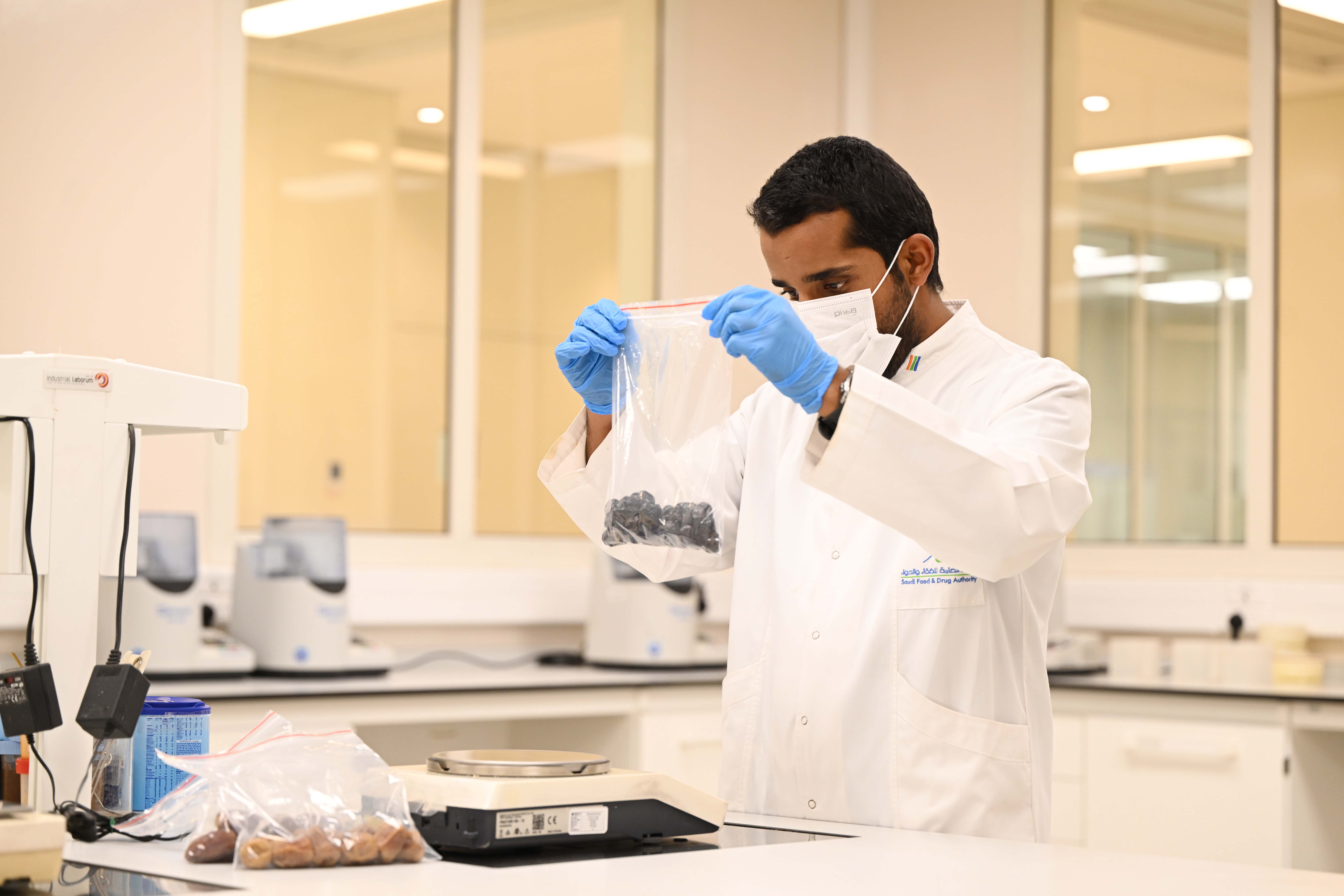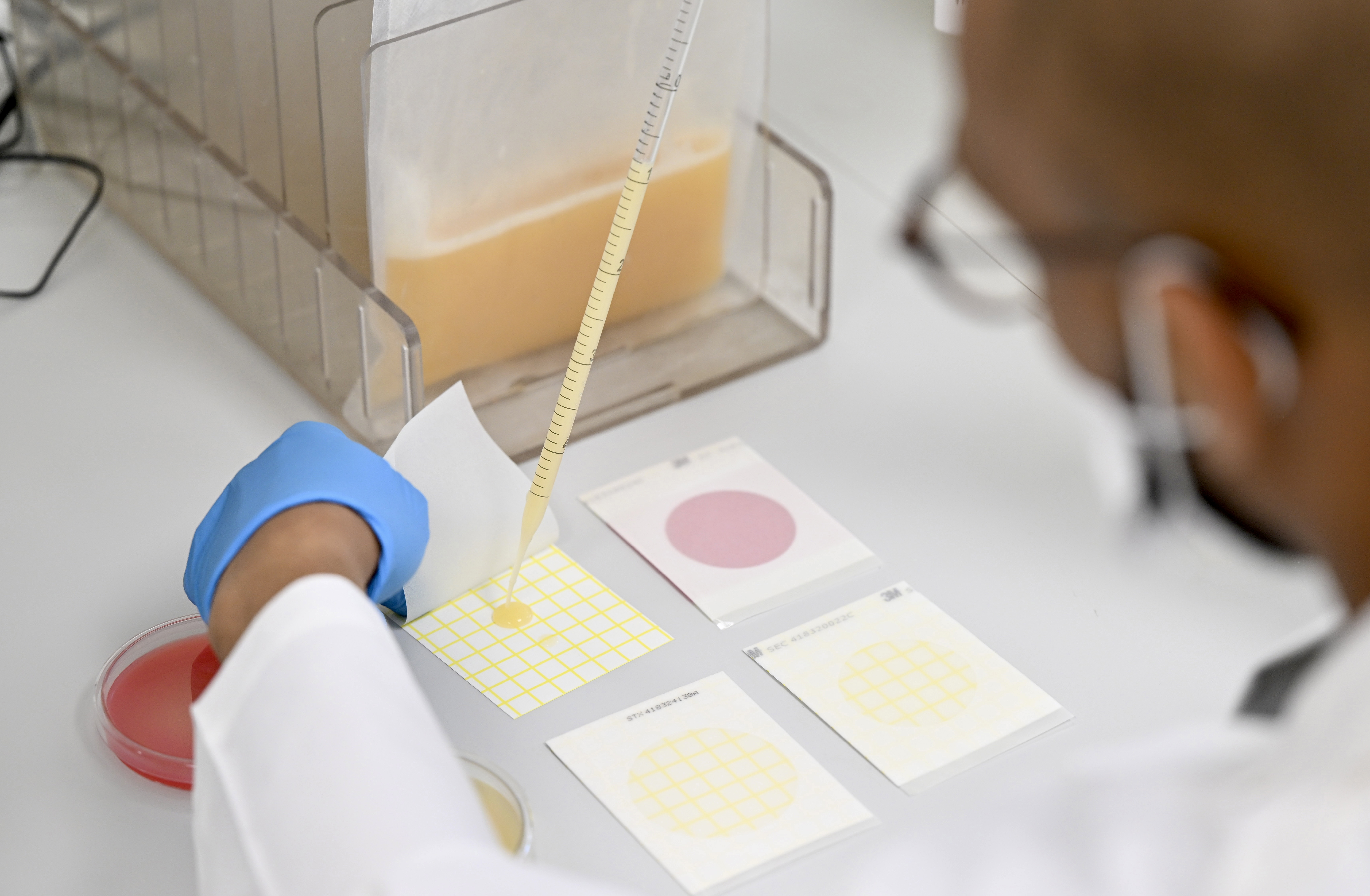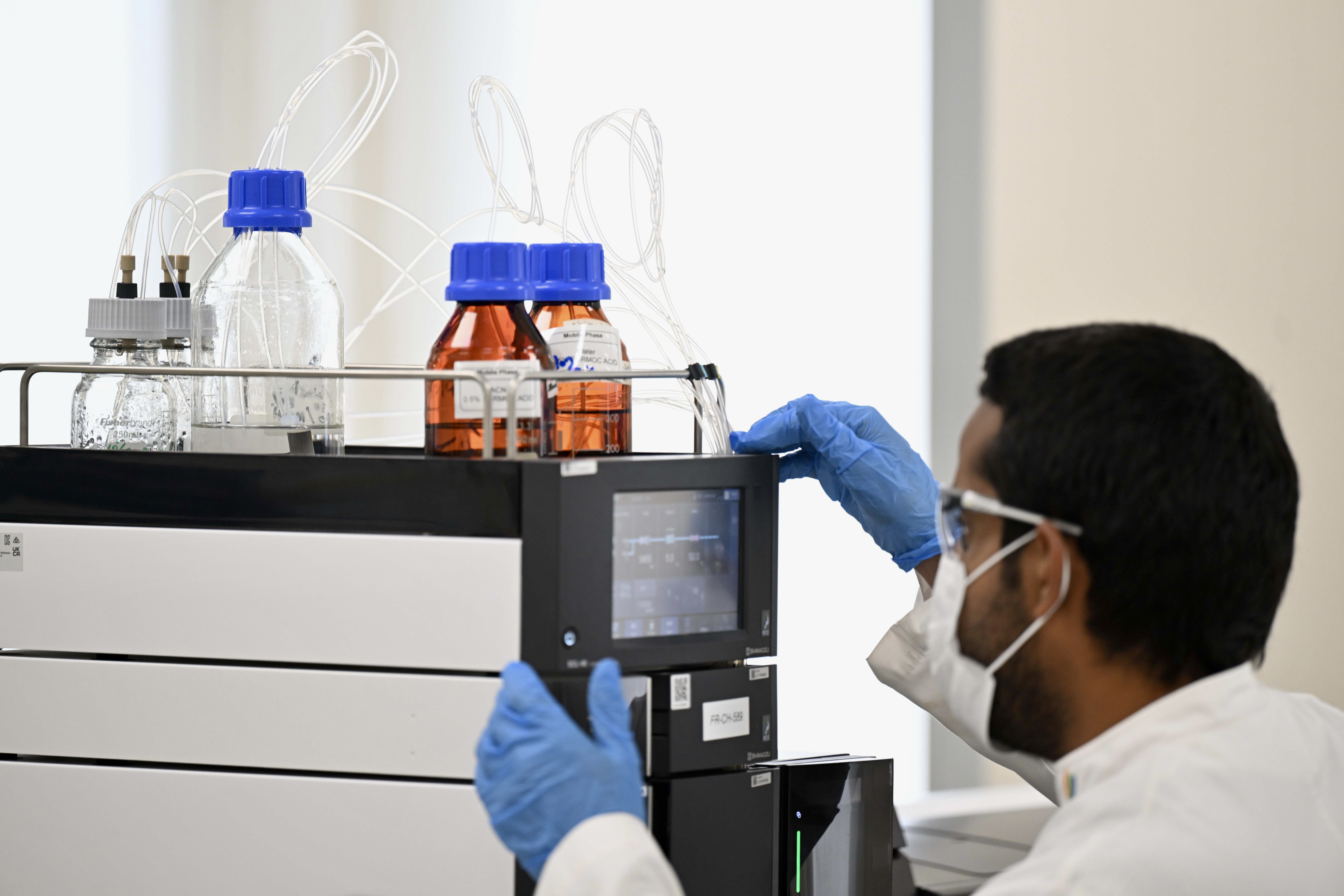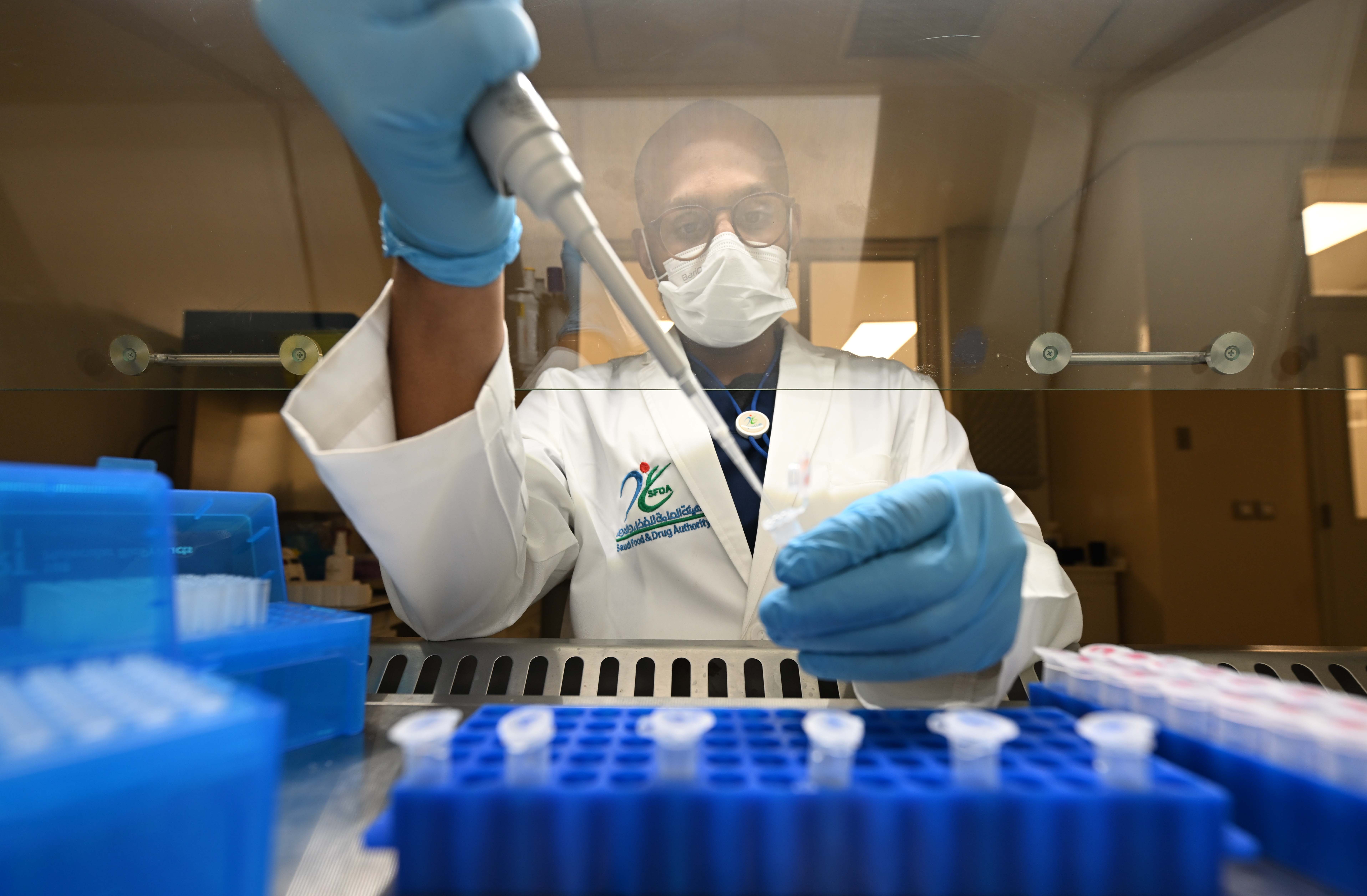
The SFDA Laboratories: Exceptional Efforts Dedicated to Ensuring Food Safety for Hajj Pilgrims
The Saudi Food and Drug Authority (SFDA)'s laboratories are fully prepared to ensure food and drug safety for pilgrims during the Hajj season 2025. This crucial undertaking forms a cornerstone of the Authority's commitment to serving the Guests of God and safeguarding the products under its supervision. This dedication stems from the esteemed care extended by our wise leadership to the pilgrims of the Holy Mosque and the SFDA’s vital collaboration with government partners to facilitate their rituals with ease and comfort.

Equipped with advanced laboratory equipment and technologies, including liquid chromatography-mass spectrometry (LC-MS), high-performance liquid chromatography (HPLC), gas chromatography-mass spectrometry (GC-MS), and polymerase chain reaction (PCR), the SFDA laboratories adhere to the highest international analytical standards, operating in close coordination with numerous government authorities.
These advanced equipment enable the detection of a broad spectrum of contaminants, including pesticide residues, veterinary drug residues, toxins, and diverse organic and inorganic pollutants. Furthermore, they facilitate the analysis of food additives, pathogenic bacteria, viruses, and other disease-carrying agents.
The laboratory endeavors synergize with the work of inspection teams in the systematic collection, analysis, and examination of food samples, alongside the implementation of targeted field study programs, which empower the Authority to refine its procedures and inform decision-making with accurate and detailed data, thereby strengthening the protection of the health and well-being of the pilgrims.
A key function of the laboratories during the Hajj season involves the inspection of food imports entering through border crossings. This ensures strict adherence to Saudi, Gulf, and international standards before these products reach pilgrims. Particular emphasis is placed on perishable goods such as meat, poultry, dairy, water, juices, and ready-to-eat meals, with the aim of minimizing the spread of bacteria and microbes and ensuring the provision of healthy and safe nourishment.
Operating at peak capacity throughout the Hajj period, the laboratories maintain efficient workflows in accordance with established international best practices. This reflects a high state of readiness and inherent laboratory efficiency in managing increased volumes without reliance on temporary surge capacity, all while maintaining high quality standards and fast performance.










